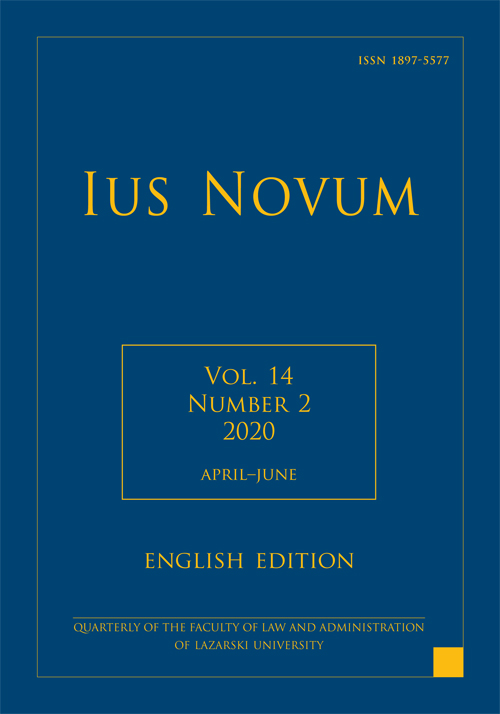Abstract
The article analyses the phenomenon of verbal aggression (in other words, hate speech) and the so-called hate crimes from the criminological point of view. Psychological sources of hate speech include emotions such as anger and hatred. Characterising sociological sources of hate crime, the author draws attention to the issue of stereotypes, ignorance and social categorisation, and deindividuation. Inter-group conflicts and prejudice addressed to particular social groups and people are also recognised to be important factors in initiating aggressive conduct like hate speech. The main problem connected with the prosecution of hate crime is identification of perpetrators of those offences committed via the Internet. The issue is less significant in relation to acts of battery, injury or violation of bodily integrity because in such cases a victim usually knows a perpetrator or he/she can be identified based on a victim’s or witnesses’ description. It is assessed that the basic reasons of poorer results in the fight against hate speech in the web include inadequate enforcement of the existing provisions of law and the lack of appropriate regulations.
